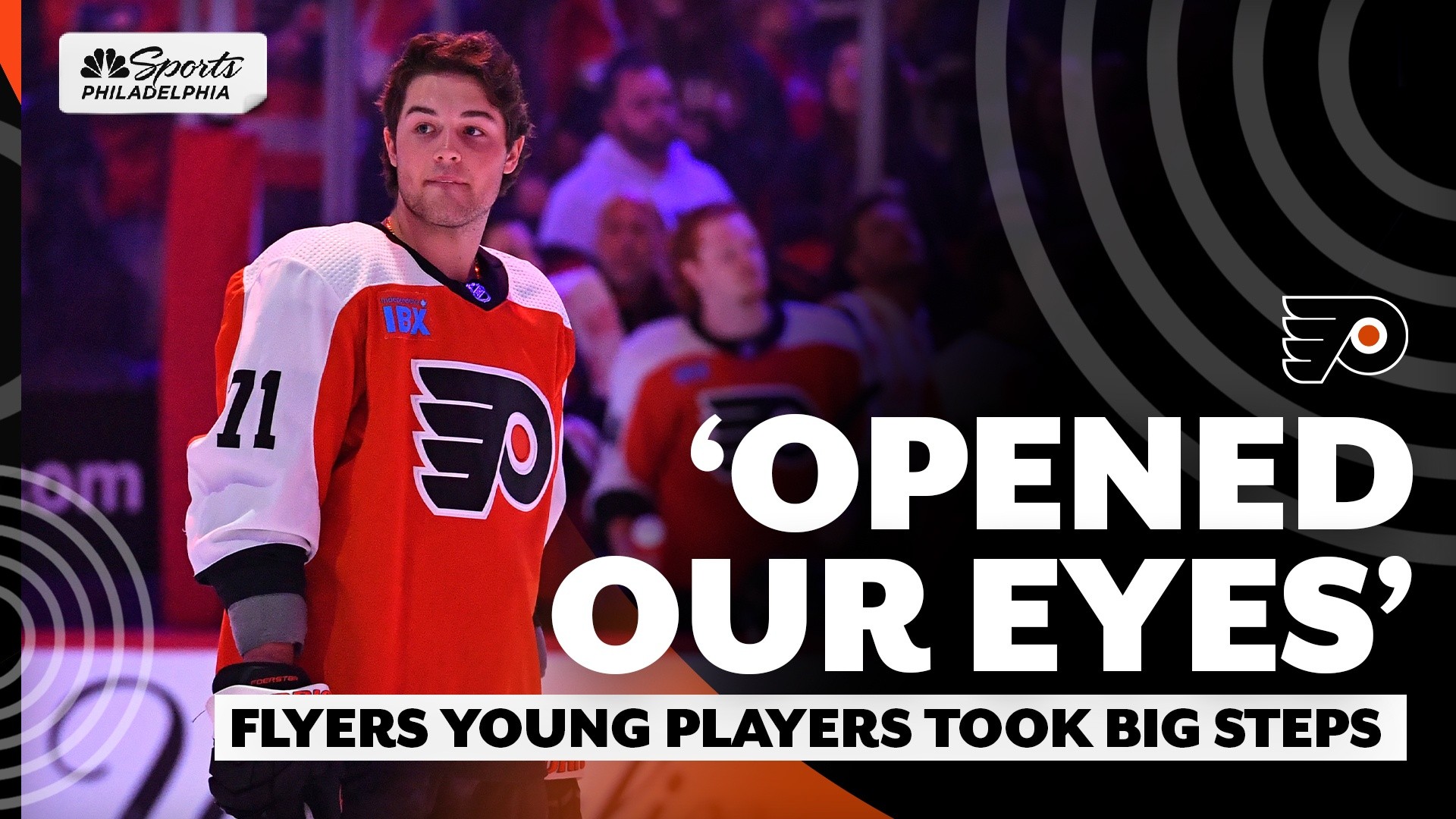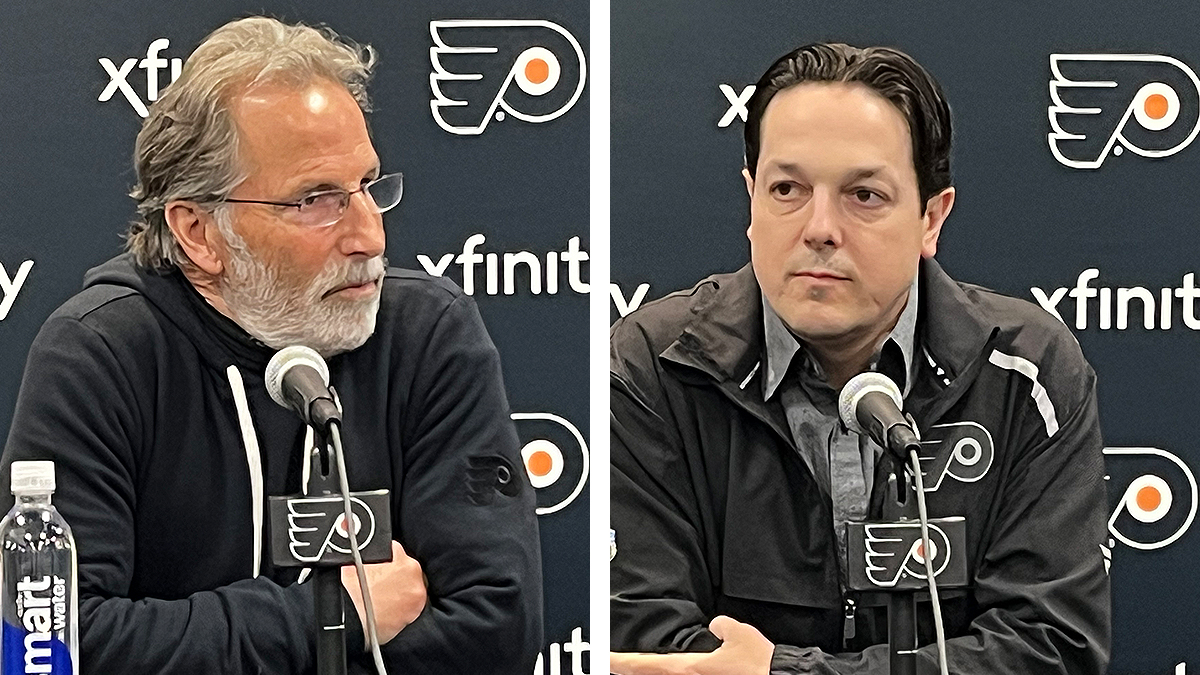
It has been over a decade since Jaromir Jagr played his last game as a Penguin. He has played in Pittsburgh a number of times since then. Yet, he has never heard the level of venom that he will hear Thursday when his Flyers visit Consol Energy Center to play the team for which he began what will be a Hall of Fame career.
For Flyers fans who do not have a full working knowledge of why Jagr will hear boos every time he takes the ice and touches the puck, it comes down to one simple fact:
Jaromir Jagr is not Mario Lemieux.
From a hockey perspective, Jagr and Lemieux were eerily similar. Neither were the fastest skaters, but both used a wide base, long arms and unmatched one-on-one skills to become the two most dominant offensive forces of the 90s.
Jagr, in fact, grew up in the former Czechoslovakia idolizing Lemieux before joining forces with the 3-time NHL MVP after being drafted by the Penguins in 1990. The Kladno Kid added another weapon to an explosive Pittsburgh offense that captured back-to-back Stanley Cups in his first two NHL seasons.
In the years that followed those championships, Lemieux spent as much time dealing with injuries and Hodgkins Disease as he did winning scoring titles. Jagr, on the other hand, emerged as a superstar fan favorite. A fast-living, free-wheeling scoring machine, the long-haired all-star had Pittsburgh in the palm of his hand.
When injury forced Lemieuxs initial retirement in 1997, Jagr became the focal point of the team. Initially, he accepted the mantle and skated with it, nearly single-handedly willing the Penguins to respectability at the end of the decade.
NHL
As Jagr kept the product on the ice afloat, Lemieux saved the team in the board room by leading a group to purchase the cash-strapped franchise. The greatest player in franchise history clearly appreciated that his legend diminished if his franchise was history.
On paper, it was the perfect setup. Jaromir (Mario Jr. if you rearrange the letters) playing for his mentor and former teammate, both sides doing their part to save Penguins hockey. Yet, Jagr had tired from the strain of carrying the load. Early in the 2000-01 season, the head-strong winger clashed with coach Ivan Hlinka, a man who was brought from the Czech Republic with the thought of appeasing the Czech star. The Penguins star undermined his coach by taking short shifts and calling team strategy meetings on his own.
During this period, Jagr uttered the statement that marked the beginning of his departure in Pittsburgh.
"I feel like I'm dying alive. I don't feel comfortable here right now, the teams captain said after a game in November of 2000. It's not the same for me right now. We'll see what happens. Maybe I'm going to think about retirement pretty soon."
Rather than lashing out, the Penguins continued to cater to their star. Lemieux ended his retirement the next month, in part because of a renewed love for the game, but also to lighten the burden that had been weighing Jagr down. Reunited on the ice, Lemieux and Jagr once again emerged as hockeys most potent 1-2 punch. The Penguins made a surprise run to the conference finals, powered by Lemieuxs return and Jagrs resurgence.
Despite that success, Jagr continued to angle for a trade, which was finally granted that off-season. It was the rare move that worked out for no one. Jagr proved ineffective and miserable in Washington. The prospects the Penguins received in return proved to be a collection of busts.
Joe Starkey of the Pittsburgh Tribune-Review succinctly summed up the latter part of Jagrs Penguins career in an article posted immediately after the trade.
Nobody questions Jagr's intelligence. He is smart. He is very funny, too. But he is stubborn and ultra-sensitive. Nobody tells him what to do. Nobody knows better than him.
Jagr eventually found some semblance of his all-world abilities with the Rangers. Meanwhile, Lemieux navigated the Penguins from league laughing stock to elite franchise, all while defying the odds and making Pittsburgh a hockey town once again. (It certainly didnt hurt that homegrown talent like Sidney Crosby, Mark-Andre Fleury, and Evgeni Malkin developed into superstars.)
After the 2007-08 season, Jagr returned to Europe to play in the KHL. The book had officially closed on the Pittsburgh chapter of the stars life. Until he opened it one more time, expressing an interest to sign with the Penguins this off-season.
He said all of the right things. He talked about his love for Pittsburgh, about playing one more time for his idol, about retiring as a Penguin. For its part, the city was ready to forgive, forget, and retire No. 68 when Jagr called it a career.
Jagr Watch in the Three Rivers felt like a done deal. It made too much sense. Lemieux gave the move his blessing after talking with his former teammate.
There was only one problem: Jagr found a better deal in Philadelphia.
After finally coming to grips with the Jagr experience, Pittsburgh once again felt scorned by the mercurial superstar. Whether Jagr deserves criticism for taking a better deal probably depends on which side of Pennsylvania you call home.
One thing is clear though: Jagrs greatest sin in the mind of Penguins fan is not being Lemieux. The Penguins owner appreciated that his legacy was intertwined with the fate of the franchise. Jagr, on the other hand, is perfectly content being a mercenary, a man without a hockey home.
Thats a fact that the sellout crowd at Consol Energy Center will be more than happy to reiterate on Thursday night.
Casey Feeney is a producer for Comcast SportsNet. E-mail him at kfeeney@comcastsportsnet.com.


